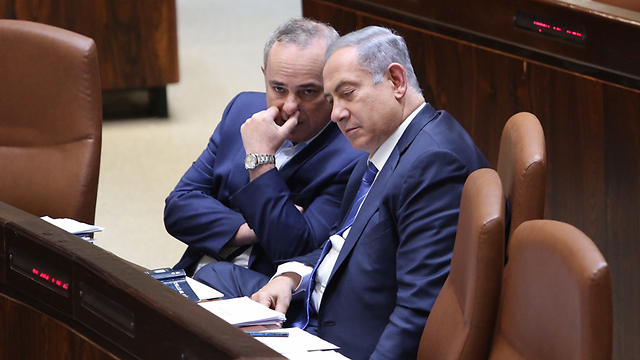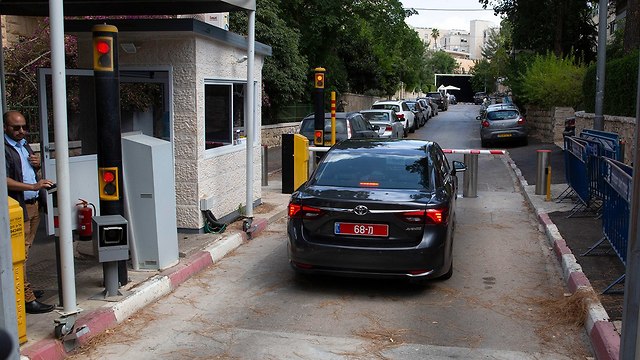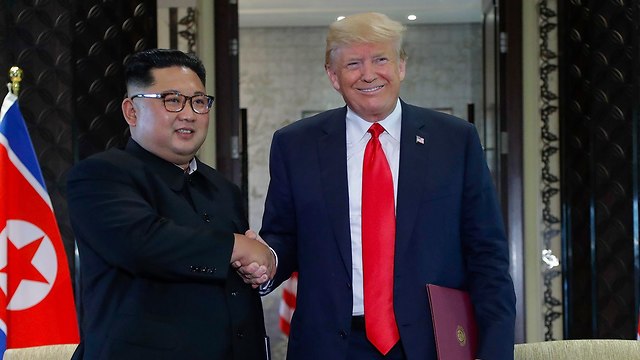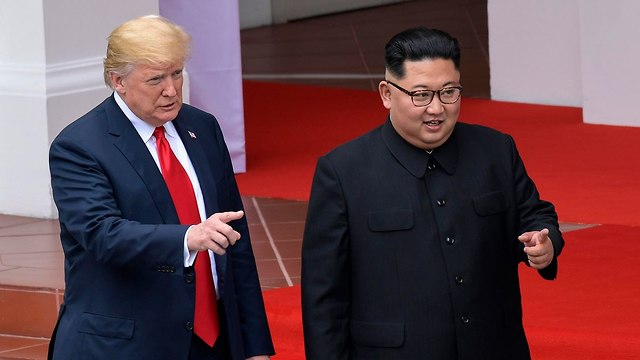

Steinitz says believes Netanyahu didn't know of Shimron-Ganor ties
Energy minister argues it hasn't been established whether David Shimron, the PM's relative and lawyer, was involved in corruption in submarine affair, and says he '100%' believes Netanyahu's claim he didn't know Shimron was employed by Miki Ganor.
"It hasn't been established yet whether his cousin is criminally involved," Steinitz told Ynet on Wednesday.
Steinitz reiterated Netanyahu's own claim to police investigators, insisting the prime minister did not know his cousin, Attorney David Shimron, was employed by state's witness Miki Ganor, who was German conglomerate Thyssenkrupp's sales representative in Israel.
Thyssenkrupp sold the Israeli Navy submarines and patrol boats to protect its natural gas reserves in the Mediterranean.
Steinitz pointed out that former prime minister Yitzhak Rabin "also did not know about Shimon Shabas," who served as Rabin's bureau chief and was convicted in 2000 of attempted bribery, fraud and breach of trust in two affairs for promoting the foreign interests of other countries.
"And the State Attorney's Office didn't know about Ruth David, who was one of the Justice Ministry's senior officials and at the same time was involved in a corruption affair," Steinitz went on to say.
Steinitz explained he also gave testimony in the case. "The people suspected of being involved in the case didn't work for me at the time of their alleged involvement. In any case, I'm not interested in commenting on the matter," he said. "The matter is still being investigated, and we'll see how it will evolve day by day."
US-N. Korea summit
Steinitz took a cautious approach about the historic summit held between US President Donald Trump and North Korea's Leader Kim Jong Un on Tuesday, arguing "It's too soon to declare it was a success, we still don't know."
"There had already been agreements or negotiations with North Korea that were violated or failed. If we genuinely see steps towards full denuclearization in the upcoming months and the dismantling of both (North Korea's) nuclear arsenal and the nuclear infrastructure enabling the production of nuclear weapons—that would be dramatic," Steinitz elaborated.
He asserted that "the pressure applied on Iran to completely denuclearize, and not just halt for seven years, will cause Iranians to say it has no point, let's dismantle."
"Only six months ago we, the world's citizens, feared a war breaking out between North Korea and the US, a war that could have escalated to a nuclear war with a real possibility of North Korea attacking Japan. Now we are talking about the possibility that North Korea and the whole region would completely denuclearize," he noted.
"How will it affect our region? Firstly, it will show Iran that even North Korea, which had advanced more that it did, eventually had to relinquish (its nuclear weapon)."
"So why continue being under the burden of severe sanctions and economic restrictions if eventually one doesn't achieve its purpose?" the minister wondered.
Steinitz also noted North Korea's aid to Iran, Libya and Syria, building a secret nuclear reactor in Syria, which Israel destroyed in a 2007 strike.
"North Korea is instigating terror in our region too—it is probably helping Iran develop ballistic missiles, it helped Syria with nuclear (advancements), it helped Libya with ballistic missiles," he specified.
"If North Korea changes its conduct and behavior, it would definitely be useful. (It would mean) Iran and Syria are losing their historic support," the minister concluded.



















